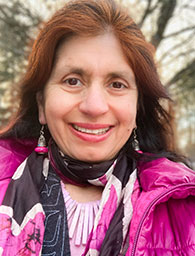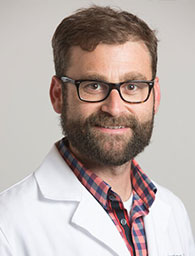WHO Regional Director for the Eastern Mediterranean Dr Ahmed AI-Mandhari was appointed as WHO Regional
Director for the Eastern Mediterranean by WHO's Executive Board at its 143rd session, and assumed office
on 1 June 2018.
Dr Al-Mandhari is a native of Oman and has made a substantial positive contribution to the development
and modernization of Oman's health system, which has witnessed qualitative improvements in recent years,
particularly in areas such as patient safety.
A specialist in family and community medicine, Dr Al Mandhari was head of Quality Management and
Development at Sultan Qaboos University Hospital from 2005 to 2006, and Deputy Director- General for
Clinical Affairs uniil 2010. From 2010 to 2013, he was Director-General of Sultan Qaboos University
Hospital, and subsequently served as Director-General of the Quality Assurance Centre at the Ministry of
Hearth until his election as Regional Director. Dr Al-Mandhari also worked as a senior consultant in
family medicine and public health in Oman from 2009 to 2018. Dr Al-Mandhari's research papers have been
widely published and he sits on the editorial boards of several journals, including the Middle East
Journal of Family Medicine. In addition, he is a reviewer for various medical journals. Throughout his
career, he has been a member of various scientific and professional committees and lectured in the
fields of quality management, patient safety, family medicine and public health.
Dr Al-Mandhari obtained a BSc in Health Sciences (1990), followed by an MD in Medicine and Surgery
(1993) from Sultan Qaboos University in Oman. In 1996, he earned a diploma in Tropical Medicine and
Hygiene from the Liverpool School of Tropical Medicine in the United Kingdom and was awarded the Royal
Fellowship for Family Doctors in 1998. In 2002, he obtained a PhD in Quality Management of Health Care
from the Liverpool School of Tropical Medicine. Dr Al-Mandhari oversaw the Fellowship Programme in the
Department of Family and Community Medicine (FAMCO) at Sultan Qaboos University from 2003 to 2006. From
2007 to 2018, he served as a member and chair of the Higher Medical Committee which investigates medical
error complaints in the Sultanate of Oman.
Keynote Speakers
How the Community learns
Keynote Session: Tuesday 24 October 2023 14:00 - 15:00

|
How Communities Learn
|
How Students learn
Keynote Session: Tuesday 24 October 2023 17:30 - 18:30

|
Professor of Rheumatology and Rehabilitation. Faculty of Medicine, Suez Canal University, MD, JMHPE
How students learn?
|
How Policymakers learn
Keynote Session: Wednesday 25 October 2023 09:00 - 10:00
 |
Dr. Farah M Shroff is a visionary Canadian public intellectual with expertise in global public health research and education. She envisions and strives for Health for All on a Healthy Planet. A policy expert, she has worked within and for many governments in Canada and elsewhere. Her research areas are integrative health approaches such as Ayurveda and yoga, and social/environmental justice-- from a feminist anti-racism decolonial lens. Speaking French, Spanish and English, she has worked in many nations as an educator within universities and other communities. She founded and leads Maternal and Infant Health Canada, a global public health collaborative aiming to improve the wellbeing of women, young ones and the environment. Harvard School of Public Health recently awarded her a mid-career fellowship, recognizing her expertise in global public health. She works as an independent consultant, faculty member at the University of British Columbia and teacher of yoga, dance, meditation and other mind-body activities. Dr Shroff is regularly featured in the media.
Catalyzing Health for All: Promoting a Culture of Learning for Policymakers
|
How Healthcare Practitioners learn
Keynote Session: Thursday 26 October 2023 14:00 - 15:00
 |
Dr. Jacob Imber is an internal medicine trained hospitalist at the University of New Mexico School of Medicine in Albuquerque, New Mexico. He completed his medical school training at the University of Kansas Medical Center in 2011 and completed his residency in internal medicine in 2014. During his academic career, Dr. Imber has engaged with medical education at all levels, from learner to faculty. He has extensive experience in teaching both communication and clinical skills as well as clinical reasoning using simulation and has created multiple training modules. In 2020, he accepted the position of Executive Director of the Office of Assessment & Learning for Undergraduate Medical Education at the University of New Mexico. Within this role, he provides direct oversight for assessment in all phases of the undergraduate curriculum from pre-clinical knowledge-based learning to advanced clinical skills training. He also manages and directs the standardized patient program for the university and organizes all clinical skills evaluations and Objective Structured Clinical Experiences (OSCEs). In addition to his educational efforts, Dr. Imber has participated in medical outreach activities in Kenya and Ecuador. Healthcare providers are intelligent, skilled and motivated learners. Unlike most students, healthcare providers bring a level of experience and knowledge to the learning environment that can be both exciting and challenging for instructors. Effective learning occurs when trainee knowledge is assessed and built upon using active and engaging methods with real world applicability. Where pre-provider training focuses on the gathering of knowledge, provider training focuses on application of that knowledge and development of skills to provide care. In this talk, we will review some of the theories behind effective teaching as well as discuss methodologies for hands-on and timely learning interventions including: simulation training for skills, “just-in-time” learning, real-time/bedside learning and developing learners’ ability to perform clinical reasoning. |

